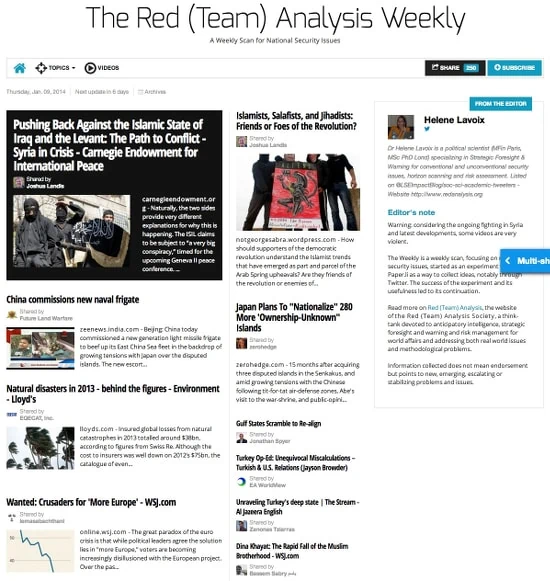Editorial – Rediscovering Politics? This week is particularly interesting, especially because of the emergence of new analyses, or rather of the rediscovery of fundamental political dynamics (and, of course, by political I do not mean politician) as fitting perfectly well current and future trends.
First, religion on the one hand, science in its high-tech and geo-engineering version, the two sides of the same coin – this normative system that, among others, presides over our understanding of the world and contributes to legitimate political power – will meet climate change and ecosystemic upheavals. Out of the answers that each side of the coin will be able to give, and out of the translation of those ideas into concrete measures by political authorities will most likely be born a new world, and new political systems. Until then, the struggles and turmoil will most probably be violent and epic.
Second, those interested in change, opposition movements and political actions will certainly find the article “How Did Raqqa Fall To The Islamic State of Iraq & ash-Sham? (Syria Untold)” particularly instructive. The lessons to be learned here, may very well be that in times of war and when confronted with enemies that are determined, organised, and play according to other rules (even when one is not at war), the past (end of 20th century – beginning of 21st century) gentle pacifist “activist” behaviour is completely counter-productive and, actually, obsolete. Once this rediscovered awareness spreads, the world may become, in general, more violent and tense (for a while). It may however also be the lesser price to pay for changes one seeks or for avoiding those evolutions one refuses. In this light, the way so many Egyptians dealt with the Muslim Brotherhood, as they refused a new system they did not want, may be seen as full of foresight, brave and wise. The alternative would have been probably easier over the very short-term, much grimmer over the mid to long-term, as shows Syria Untold’s story.
Finally, among an array of signals or indications of issues and problems strengthening (more than emerging), a few lead us to ask some pressing questions: Will Libya fully descend into civil war? Or, even more worryingly, when will Libya be at war? How far into domestic turmoil is Lebanon and what will the start of the Hariri trial stir? How high are we in the escalation process between China and Japan? How much of a “wild card” is Turkey, considering the complex situation in which it is at all level?
Click on the image below to read on Paper.Li













